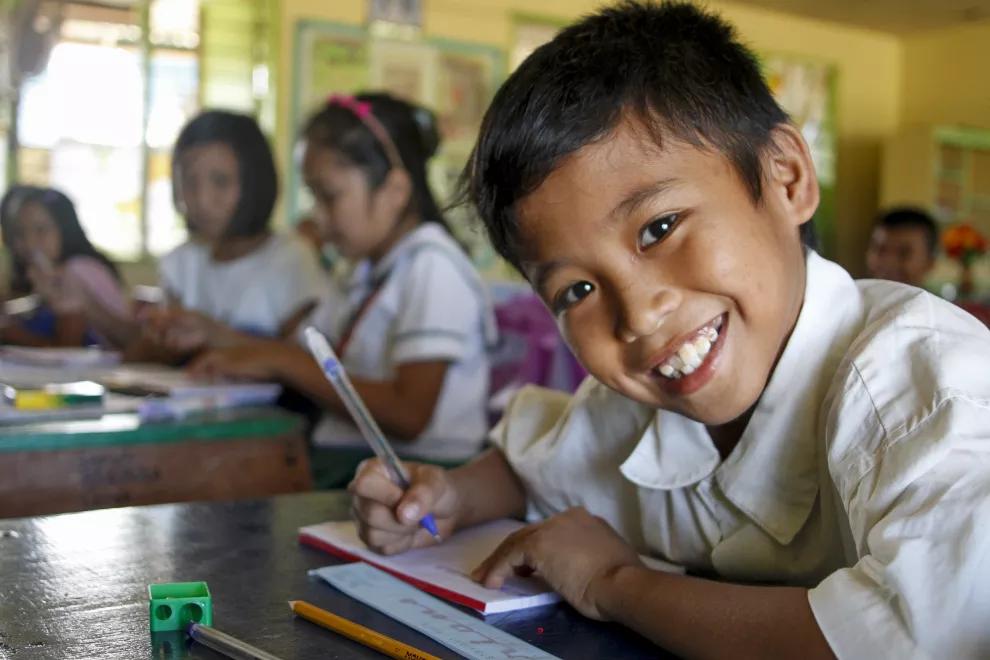Think tank IBON Foundation asked the government to invest more in education (particularly in creative thinking and sciences) as the Philippines continued to fail in the recently-published Programme on International Student Assessment funded by the Overseas Economic and Cooperation Development.
Filipino students, ages 15 or those nearing graduation from the basic primary education system covered by the PISA study, were ranked 63rd out of the 64 countries that were covered by the study, particularly in creative thinking, which IBON said is “both a cause and effective of a progressive society.”
The Philippine government should boost spending on its public education system, arts and technology and on-the=job training programs for students after PISA found Filipino students among the worst in the world in creative thinking, or producing and evaluating original ideas that would translate to effective solutions.
Creative thinking
IBON Executive Director Sonny Africa said the government should invest more in arts and culture, science, and technology to spur creative thinking in Filipino students.
“Creativity is both cause and effect of a progressive society and the state has a key role in fostering or suppressing this. Our education system has to be at the forefront of pushing for all the factors needed for creativity, innovation and development,” he told Business World.
Filipino students got an average score of 14 on creative thinking in the 2022 PISA Volume III study, which is way below the global average of 33, just a point better than Albania in the Balkan Peninsula.
Financial reform
Ateneo Economics Prof. Leonardo Lanzona said the government seriously consider a comprehensive financial reform program in the whole education sector towards one that places a premium on foundational basic education and redistributes more funds to poor regions that sorely need to enhance education quality.”
“Since learning is cumulative, this fundamental weakness in education will make our workers unproductive and unskilled, thus reducing our chances of reaching upper middle-income status.”
The Marcos administration aims to achieve an upper middle-income status by 2025 but given this current weakness in the future workforce, then such a dream would be meaningless.
Singapore topped the list getting a score of 41, with South Korea and Canada following at 38, each.
De La Salle Economics Prof. Maria Ella Calaor-Oplas, who specializes in human capital development research, told Business World that developing on-the-job training programs that focus on innovation and critical thinking would better prepare students to enter the workforce.
“I believe that we still confine education in a box. Our education should take into consideration that children have different gifts and that they should not be assessed according to common standards,” she said.
“We see education as something that can be assessed using exams, recitation, and other factors taken inside the classrooms.”
PISA 2022 assessed the students’ performance in mathematics, reading and science. Filipino students were among the world’s weakest in those subjects, ranking 77th out of 81 countries and performing worse than the global average in all categories.
But in the 2022 English Proficiency Index by Education First, the Philippines placed 22nd out of 111 countries.
Terry Ridon, a public investment analyst and convenor of the think tank InfraWatch PH, said the government must conduct a comprehensive review of the basic education system to address these learning gaps.
“It will take more than significant spending to improve our results. The government should continue to review its basic education curriculum and work on how to improve results,” he continued.
More funds
Senator Koko Pimentel earlier this month called on the government to upgrade teacher education training institutions to increase its pool of licensed teachers and raise the quality of education.
The government had allocated P924.7 billion for education in this year’s P5.768-trillion national budget, with the Department of Education receiving P758.6 billion.
Under the 1987 Constitution, the government must prioritize funding the education sector.
The Second Congressional Commission on Education (EDCOM II) is prioritizing the internationalization of higher education and improving research productivity this year, EDCOM II Executive Director Karol Mark Yee told a Senate hearing in February.
EDCOM II and the Philippine Institute for Development Studies in a May report noted a “severe underinvestment” in the welfare of very young children in the Philippines, causing their early education to suffer.
The government only spends about P3,870 per child for health, compared with the $150 (P8,809.95) that other lower and middle-income countries spend on children’s health, the report showed.
